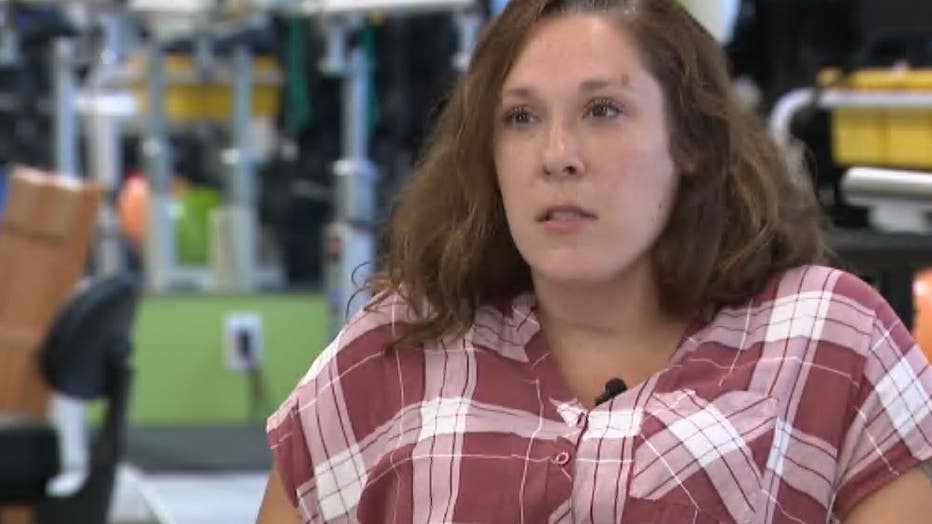Marquette ASPIRE Trial: 'ExaStim' paralysis device changing lives
MILWAUKEE - For more than a decade, a Hartford woman grew to accept her limitations. A crash damaged her spinal cord, leaving her paralyzed from the chest down, but a new clinical trial is helping her regain her sense of freedom.
Inside Cramer Hall at Marquette University, Ashley Dall teaches a lesson in resilience and the power of potential.
"I was losing strength in my shoulders," said Dall. "My body was experiencing so much pain."
That pain stemmed from an accident nearly 12 years ago. She was riding in a car, merging onto I-41 near Hartford.

Ashley Dall
"A semi was coming, and then the driver tried to get ahead of the semi, but it didn't happen," said Dall.
The crash threw Dall from the car. She suffered a spinal cord injury and was paralyzed from the chest down. When her pain worsened a couple of months back, her search for answers brought her to the Neuro Recovery Clinic at Marquette.
"There's no cure for a spinal cord injury yet, and so we're really trying to push the envelope on how much recovery we can get for people's spinal cord injury," said Kim Dechant, clinic director.
Dechant offered Dall more than therapy, enrolling her in a clinical trial for a new device specifically made for spinal cord injuries. It's called the "ExaStim."
"It provides stimulation, and the goal is that it helps to supplement the therapy that we're doing, and we want a motor response," said Dechant.

Ashley Dall
They place electrodes over the spot of the injury. Using a tablet, it delivers small pulses to the nerves along the spinal cord, helping motor functions recover, even years after the injury.
SIGN UP TODAY: Get daily headlines, breaking news emails from FOX6 News
"It's changed my life in the last two months," said Dall.
Over two months, Dall made two trips a week to the clinic, testing her strength on bottle caps, buttons, chair push-ups and more.

Ashley Dall
"The hardest part for me to learn was the things that should be easy are not easy," said Dall. "After 12 years and kind of just getting into the mundane life of, 'This is my normal, it was like, 'Oh, this doesn't have to be my normal. I can be better.'"
Life can still roll on in the face of paralysis.
"It's just really a great feeling to know that we can provide that here," said Dechant.

Ashley Dall
Marquette is the first location in the country to host the ASPIRE Trial and is still looking for more participants. They hope to wrap it up by spring 2024.

